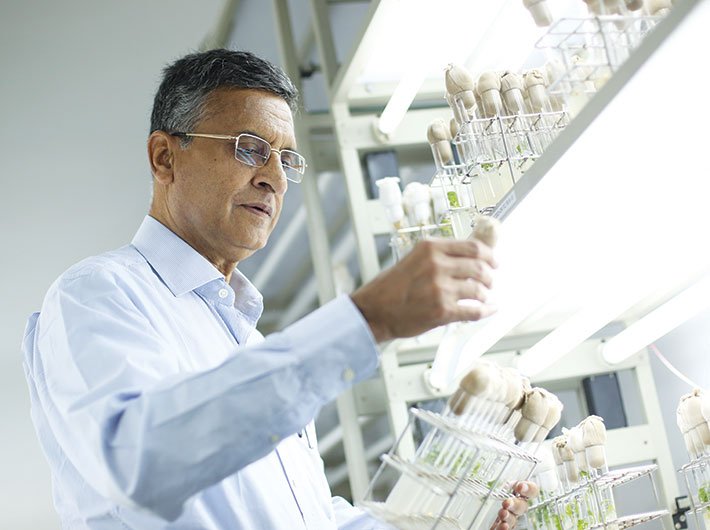Deepak Pental, scientist, Delhi University talks about the impact of GM mustard on Indian economy
If the GE mustard hybrid was developed in 2002, why has the environment ministry not taken a decision on it yet?
Nobody had the guts to release it, and till today, it’s the same story. The ideology behind not clearing it is so dumb that it is difficult to explain. This country is divided into two sides, the left and the right. They don’t agree on anything, but it is strange that they both agree on this matter.
What concerns are being raised regarding the release of GE mustard? Are these ethical, moral or practical?
It is not as complicated as it is being made out. The left and right ideologues are not seeing it with a pragmatic eye. They are looking at it with coloured glasses. Somebody fears that this technology is going to expand the multinational sector, some are worried about the country’s food security, and others feel that agriculture should be done the way it was done 2,000 years ago. It is strange. I am not saying that older techniques have become useless but a huge amount of conventional breeding is required. You have a new thing in your arsenal and that is genetic engineering. You have to use it. And look at Canada, Europe and China: they have high productivity; the world has already done it. This is already in the food chain and that is why all these protests to GE and GM products are absurd.
If we have the technology, it is absolutely silly not to use it. It’s of no use if ultimately you don’t want to take advantage of it. It is for the people.
How can transgenic mustard benefit the Indian farmer and agriculture?
If the yield is increasing, it will naturally be more productive for farmers. Seventy-five percent farmers are already replacing their seeds and when they get more production, they are bound to buy new seeds every year. However, the one who is not going to get immediate benefit out of this is the urban consumer because the price of mustard is not going to come down. It’s a matter of great shame for the country that we have 170 million hectares of land under cultivation. 47% of population is directly dependent on agriculture and our productivity is so low that we are asking for edible oils. That money should go in farmers’ pocket.
Also, this crop is disease-resistant. It also saves the farmer’s money in buying fungicides that are to be sprayed to protect the crop. An Indian farmer’s income is not that high that he can afford to buy such products to protect his crop. We have in-built this disease resistance in GE mustard. Protection of the yield is much more important than creating higher yield. And we took this in consideration while working on it.
But the seed cost will increase. Is it going to be affordable for the farmers?
Right now, the cost of a pure line variety seed is Rs 200 [per kg]. This might increase the price by Rs 50-100. Now this money is only 1-2% of their total expenditure which is on agriculture machinery, fertilisers, electricity, water, etc. The seed’s cost is peanuts as compared to that.
There have been reports that higher prices of Monsanto’s BT cotton seeds have pushed farmers into debt. Many activists have also blamed it for farmer suicides. Your comments?
If you put GE mustard hybrids which give 30% more yield in 1 million hectare of land, farmers will earn about Rs 400-500 crore. And this is not just some random calculation. We have worked on this and submitted documents. We don’t need to recover any investment like Monsanto. In fact, whatever we have invested will automatically be recovered within a year. As far as farmer suicides are concerned, relating it to something as constructive as a transgenic food crop is foolishness. For two years there were droughts. Farmers don’t even have access to bank loans. They have sources where they are charged exorbitant amount of money. So crop failure might be a cause, health of the farmers is also one of the causes but claiming that GMOs are leading to farmer suicide is absurd.
What will be its overall impact on Indian economy?
It is going to be good for farm economy. If farm economy improves, general consumption will increase and thus India’s GDP will increase. Also, India’s oil import will come down. If we are spending about Rs 65,000 crore on oil import, it will come down to Rs 50,000 crore. So, we will save Rs 15,000 crore and it’s a great achievement. It is not going to happen immediately but gradually it will come down.
(The interview appears in November 16-30, 2016 edition of Governance Now)

